Featured
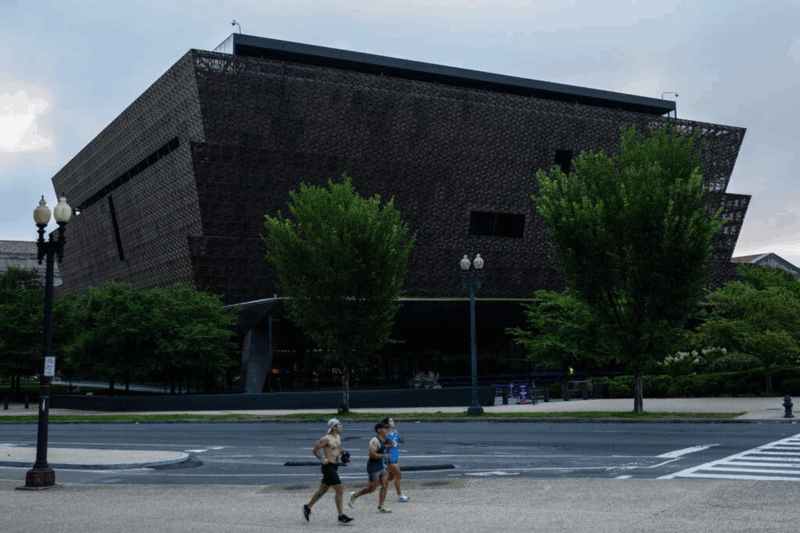 Trump Says Smithsonian Focuses Too Much on ‘How Bad Slavery Was.’ Zolan Kanno-Youngs / NYT
Trump Says Smithsonian Focuses Too Much on ‘How Bad Slavery Was.’ Zolan Kanno-Youngs / NYT
President Trump accused the Smithsonian Institution on Tuesday of focusing too much on “how bad slavery was” and not enough on the “brightness” of America as his administration conducts a wide-ranging review of the content in its museum exhibits. The Smithsonian’s National Museum of African American History and Culture in Washington.
“The Smithsonian is OUT OF CONTROL, where everything discussed is how horrible our Country is, how bad Slavery was, and how unaccomplished the downtrodden have been — Nothing about Success, nothing about Brightness, nothing about the Future,” Mr. Trump said in a social media post. “This Country cannot be WOKE, because WOKE IS BROKE. We have the ‘HOTTEST’ Country in the World, and we want people to talk about it, including in our Museums.” Read more
Related: Trump’s Attempt to Make Museums Submit Feels Familiar. By Michelle Goldberg / NYT
Political / Social
 What Trump Is Really Up to in Washington. By Jamelle Bouie / NYT
What Trump Is Really Up to in Washington. By Jamelle Bouie / NYT
You do not need the strongest powers of observation to see that crime is a pretext — and not the main reason — for the military occupation of Washington by federal agents and soldiers from the National Guard.
If the president cared about crime, he would push House Republicans to restore the $1 billion Congress cut from the city’s budget, so that Washington could fully staff its Metropolitan Police Department and pay for the services and personnel necessary to keep the city safe. He might fill vacancies at the U.S. attorney’s office in Washington and on the local Superior Court, to help federal and municipal officials bring cases to fruition. Read more
Related: Is Trump’s DC Military Deployment the Start of a Slow-Motion Civil War? By Joan Walsh / The Nation
Related: Trump’s Domestic Deployments Are Dangerous. For the Military. By David French / NYT
Related: After Bondi touts weekend arrests in DC, mayor pushes back. By Luke Barr and Beatrice Peterson / ABC News
 Trump’s Takeover of D.C. Is Not a Distraction. It’s the Whole Point. By Monica Potts / TNR
Trump’s Takeover of D.C. Is Not a Distraction. It’s the Whole Point. By Monica Potts / TNR
Yes, his approval rating is tanking and he’s still trying to shake the Epstein scandal. But he’s been foreshadowing this authoritarian power grab for years—and yet Democrats still weren’t ready for it.
Trump isn’t actually worried about crime. He’s not trying to make the district safer for its residents, and he’s certainly not weighing the data and evidence when he calls on governors to send guardsmen. Parading troops through an American city is a brazen authoritarian power grab, a test run at martial law in a city with an already heavy federal presence. Read more
Related: Federal Agents Are the New Proud Boys. By Melissa Gira Grant / TNR
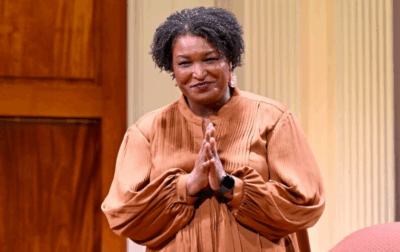 They’re Not Just Coming for DEI. They’re Coming for Democracy. By Stacey Abrams / The Nation
They’re Not Just Coming for DEI. They’re Coming for Democracy. By Stacey Abrams / The Nation
Destroying DEI has a clear motive: to stop Americans from seeking common cause.
In recent weeks, the Trump administration has expanded its attacks on America’s most vulnerable communities. From the horrific Republican tax and budget bill that plunges the working classes into debt and supercharges masked deportations, to the executive orders demonizing the homeless and prohibiting algorithmic justice in AI, Republicans have moved to eradicate their deepest fear: a multiracial, multiethnic democracy. The scapegoat of the moment is DEI. Read more
Related: I’m a Red-State Mayor Who Knows the Value of Diversity.
Related: Reverse discrimination? In spite of the MAGA bluster over DEI, data shows white Americans are still advantaged. By Fred L. Pincus / The Conversation
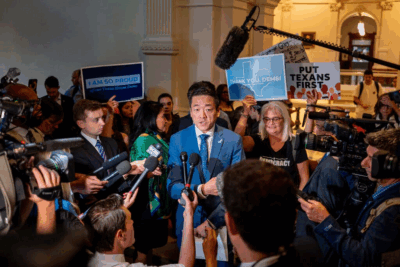 Texas Democrats End Walkout, Allowing Redrawn Map to Pass. J. David Goodman / NYT
Texas Democrats End Walkout, Allowing Redrawn Map to Pass. J. David Goodman / NYT
Gene Wu, Texas House Democratic Caucus Chair, at a news conference at the conclusion of a House session on Monday in Austin
Democrats said they decided to return after their walkout succeeded in preventing a vote on the map in the first special legislative session, a move that drew national attention to Mr. Trump’s push for a rare mid-decade redistricting and helped propel Democratic-run states to begin their own redistricting efforts. Read more
Related: Trump Accidentally Lets Slip Dark Truth About His Plot to Rig Midterms. By Greg Sargent / TNR
Related: On the Power of Small Acts of Noncompliance. By Elie Mystal / The Nation
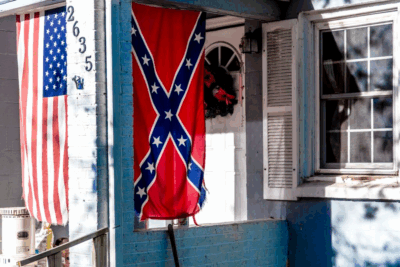 “It’s a complicated time to be a white Southerner” − and their views on race reflect that. By James M. Thomas / Salon
“It’s a complicated time to be a white Southerner” − and their views on race reflect that. By James M. Thomas / Salon
Scholars interviewed white Southerners to get past the stereotypes people hold of them
Historian Nell Painter remarked in 2011, “Being white these days isn’t what it used to be.” For the past decade, wave upon wave of protests against police violence and mass incarceration have drawn the public’s attention toward the continued significance of America’s color line, the set of formal and informal rules that maintain white Americans’ elevated social and economic advantages. Meanwhile, an explosion of popular literature scrutinizes those rules and places white people’s elevated status in sharp relief. How are white people making sense of these tensions? Read more
 Understanding The Black Maternal Health Crisis. By Shannon Dawson / Newsone
Understanding The Black Maternal Health Crisis. By Shannon Dawson / Newsone
Despite mounting evidence that Black women in the U.S. face disproportionately high rates of maternal mortality, efforts to close the gap remain inconsistent. How do we change this?
Despite its wealth and medical technology, the United States continues to lag behind peer nations, with the highest maternal mortality rate among developed countries, and that said reality is harming Black women. According to the Centers for Disease Control and Prevention (CDC), maternal mortality rates in 2023 declined significantly for White non-Hispanic and Hispanic women. Read more
Education
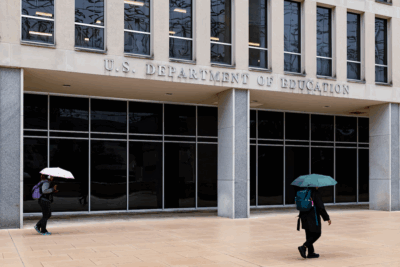 Under Trump, the Education Dept. has flipped its civil rights mission. By Laura Meckler / Wash Post
Under Trump, the Education Dept. has flipped its civil rights mission. By Laura Meckler / Wash Post
The Trump administration has upended civil rights enforcement at K-12 schools and colleges, prioritizing cases that allege transgender students and students of color are getting unfair advantages, while severe staff cuts have left thousands of other allegations unresolved.
These changes define the new tone and mission in the civil rights office, which is aggressively pursuing Trump’s agenda. Under the Biden administration, the Office for Civil Rights focused on ensuring equal opportunity for students of color. Now, the office has opened several investigations into whether programs aimed at addressing inequities amount to illegal discrimination in favor of those students. Read more
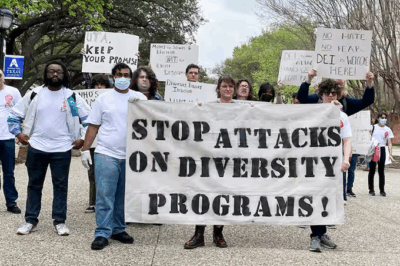 DEI closures at colleges leave students with ‘a different reality.’ By Lexi Lonas Cochran / The Hill
DEI closures at colleges leave students with ‘a different reality.’ By Lexi Lonas Cochran / The Hill
The student experience is changing at universities after multiple diversity, equity and inclusion (DEI) programs, offices and centers have been shut down.
The shift is creating a new environment this academic year even as experts say antisemitism and racism are among top concerns for students. Campus Reform’s anti-DEI tracker found that as of April, 20 states have passed legislation that bans various diversity initiatives on campuses, ranging from dedicated centers to trainings. Read more
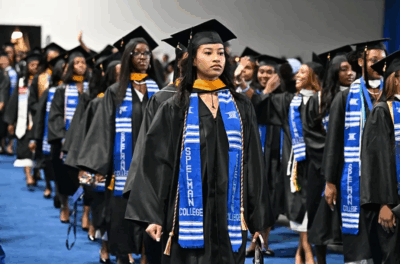 Are Black Women Still The ‘Most Educated’ Group In America? By Shannon Dawson / Newsone
Are Black Women Still The ‘Most Educated’ Group In America? By Shannon Dawson / Newsone
Black women have long been celebrated for their educational achievements, but does the narrative still hold true that they are the “most educated” in 2025? Recent data suggests that Black women are still making significant strides in higher education, though broader challenges remain.
According to 2024 data from Pew Research, Black women continue to lead academically at colleges and universities across the U.S. Approximately 38% of young Black women have earned a college degree, compared to just 26% of Black men. This marks a dramatic shift from 30 years ago, when only 14% of Black women and 16% of Black men had bachelor’s degrees. Read more
 The Troubling Lines That Columbia Is Drawing. By Eyal Press / The New Yorker
The Troubling Lines That Columbia Is Drawing. By Eyal Press / The New Yorker
By adopting an overly broad and controversial definition of antisemitism, the university is putting both academic freedom and its Jewish students at risk.
In 2005, a “working definition” of antisemitism was posted on the website of the European Monitoring Centre on Racism and Xenophobia, a research institute founded by the European Union. It described antisemitism, somewhat vaguely, as “a certain perception of Jews, which may be expressed as hatred toward Jews. In the two decades since it was introduced, this definition has not been endorsed by most leading scholars of antisemitism, in part because critics believe that it blurs the line between hostility toward Jews and criticism of Israel. Read more
Related: Assembly Bill 715 is framed as a measure to combat an “antisemitic learning environment.”
World
 Ukraine Diplomacy Reveals How Un-American Trump Is. Thomas L. Friedman / NYT
Ukraine Diplomacy Reveals How Un-American Trump Is. Thomas L. Friedman / NYT
I am really trying to be fair in analyzing the Trump-Putin-Zelensky-Europe drama that has been playing out the past few weeks. For now, the whole thing leaves me deeply uncomfortable.
I have covered a lot of diplomatic negotiations since becoming a journalist in 1978, but I have never seen one where one of the leaders — in this case Ukraine’s president, Volodymyr Zelensky — felt the need to thank our president about 15 times in the roughly four and a half minutes he addressed him with the press in the room. Not to mention the flattery that our other European allies felt they needed to heap on him as well. Read more
Related: Trump Won’t Deliver Peace to Ukraine—or Anywhere Else. By Jeet Heer / The Nation
Related: Trump Buys More Time for Putin. By Tom Nichols / The Atlantic
Related: How Putin Brushed Off Trump’s Latest Push for Peace in Ukraine. By Simon Shuster / Time
 There is no ‘Trump doctrine’ in foreign policy. Just chaos. By Sidney Blumenthal / The Guardian
There is no ‘Trump doctrine’ in foreign policy. Just chaos. By Sidney Blumenthal / The Guardian
The recent summit meeting in Alaska between Trump and Putin was nothing short of a theater of the absurd
In Trump’s new world order, Putin would be his partner, especially on the frontier of the Arctic, while Trump waged a trade war imposing harsh tariffs on every other nation. Ukraine stood as an obstacle to the gold rush. In Putin’s shadow, Trump was bared as having no larger or smaller concept or strategy of Great Power politics. It would be unfair to accuse Trump of having an idea beyond his self-aggrandizement. If anything, he aspires to be like Putin, whom he called a “genius” after his invasion of Ukraine. Read more
Related: Trump’s Tariff War Is Economic Racism, Disguised As ‘Fair Trade.’ By Stacey Patton / Newsone
 Nationwide Protests Over The War In Gaza Erupt In Israel. By Sam Metz, Natalie Melzer and Samy Magdy / HuffPost
Nationwide Protests Over The War In Gaza Erupt In Israel. By Sam Metz, Natalie Melzer and Samy Magdy / HuffPost
Israeli protesters demanding a deal to free hostages in Gaza attempted to shut down the country Sunday in one of the largest and fiercest protests in 22 months of war. Organizers, representing the families of hostages, asserted that hundreds of thousands of people took part.
Frustration is growing in Israel over plans for a new military offensive in some of Gaza’s most populated areas. Many Israelis fear that could further endanger the remaining hostages. Twenty of the 50 who remain are believed to be alive . Read more
Ethics / Morality / Religion
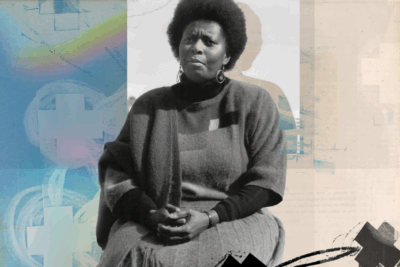 A sanctuary for banned stories. By Kelly Brown Douglas / The Christian Century
A sanctuary for banned stories. By Kelly Brown Douglas / The Christian Century
When truth is being cast as lies, the sacred work of storytelling is urgent. This question, explored by womanist ethicist Katie Cannon, captures the lived experience of Black women whose realities have long been disbelieved, marginalized, or erased.
We have seen this historically with Black lives, and we see it now in other communities across the globe. To refuse the truth of apartheid is to diminish the humanity of Black South Africans. To deny the truth of the Holocaust is to deny the humanity of Jewish people. To silence the story of the Nakba is to discount the humanity of Palestinian people. To erase these narratives is to make people more vulnerable to racism, antisemitism, anti-immigrant hatred, Islamophobia, and various other forms of violent dehumanization. The theological imperative is clear. Storytelling is an essential part of the sacred work religious institutions must do. Read more
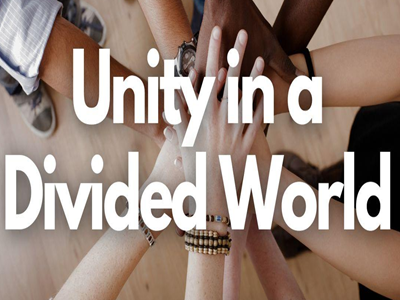 Unity in a Divided World: A Spiritual Guide By Dennis McIntyre / Patheos
Unity in a Divided World: A Spiritual Guide By Dennis McIntyre / Patheos
We live in a divided world. We are divided by race, gender, sexual preference, religion, or politics. There is only one way to bring unity in every situation: to follow the model Jesus gave us. Let’s take a look.
Jesus repeatedly spoke about unity. He did not focus on simply agreeing, but talked of unity regarding a divine relationship and spiritual purpose. Jesus links the unity of His disciples to the unity of the Trinity, preaching unity in love, purpose, and spirit: Read more
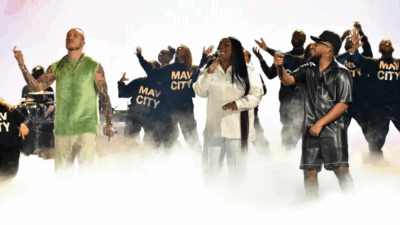 Maverick City Is Not Diluting Gospel Music. By Stephen Newby / Christianity Today
Maverick City Is Not Diluting Gospel Music. By Stephen Newby / Christianity Today
From Thomas A. Dorsey to Andraé Crouch and Kirk Franklin, the worship genre has always integrated new sounds.
In African American gospel music, new sounds and idioms have always emerged, and sometimes they were integrated amid resistance. Lately, this issue has cropped up with Maverick City Music, whose genre-blending approach (gospel plus contemporary Christian music, or CCM) has sparked debates about whether it’s diluting a beloved art form. Read more
Historical / Cultural
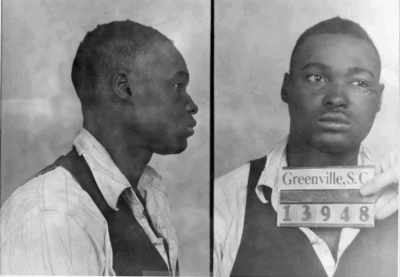 The Ghost Of Willie Earle: A Civil Rights Horror Story. By Bilal G. Morris / Newsone
The Ghost Of Willie Earle: A Civil Rights Horror Story. By Bilal G. Morris / Newsone
His intriguing tale is very much a sad American horror story filled with racism, tragedy, murder, and injustice.
There is a ghost roaming the halls of Pickens County Museum in South Carolina and his name is Willie Earle. His intriguing tale is very much a sad American horror story filled with racism, tragedy, murder, and injustice.We created Black folklore to tell fascinating stories from American history that aren’t told in the history books. Here is the story of the ghost of Willie Earle and the haunting of the Pickens County Museum. Read more
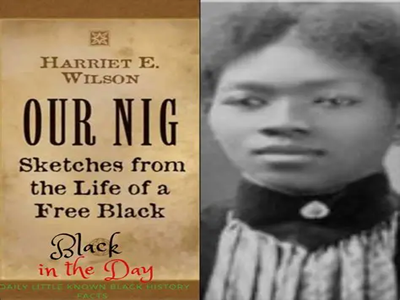 The Life Of Harriet Wilson: 1st Black Woman To Publish A Novel. By Shannon Dawson / Newsone
The Life Of Harriet Wilson: 1st Black Woman To Publish A Novel. By Shannon Dawson / Newsone
Harriet E. Wilson, born around 1825 in Milford, New Hampshire, is considered the first African American woman to publish a novel in the U.S. Her book, ‘Our Nig,’ was released in 1859.
In 1859, Wilson published Our Nig; or, Sketches from the Life of a Free Black, in a Two-story White House, North. Showing that Slavery’s Shadows Fall Even There. Printed by George C. Rand and Avery in Boston, the semi-autobiographical novel tells the harrowing story of Frado, a biracial girl abandoned by her mother and raised by a white family in New Hampshire who subjected her to relentless abuse, despite living in a region known for its abolitionist leanings, according to Blackpast. Read more
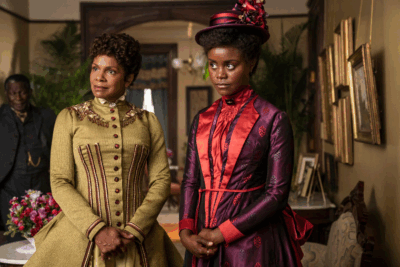 “The Gilded Age” is at its best when Black prosperity is central to the story. By Melanie McFarland / Salon
“The Gilded Age” is at its best when Black prosperity is central to the story. By Melanie McFarland / Salon
That Black people played a foundational role in American history isn’t a question, although depictions of the breadth and variety of that experience are still rare. And presenting Black characters whose family names predate the Declaration of Independence is practically unheard of.
To white Americans with old money bloodlines, a family tree linked to the American Revolution era carries substantial weight. But I’m wagering a large share of “Gilded Age” viewers had no idea that free Black folks and other people of color set down roots in colonies that paid for their children and grandchildren in the form of generational wealth. Through the Kirklands and Scotts, we get to see what Gilded Age prosperity looked like for a privileged subset of Black Americans about which most viewers were never aware. Read more
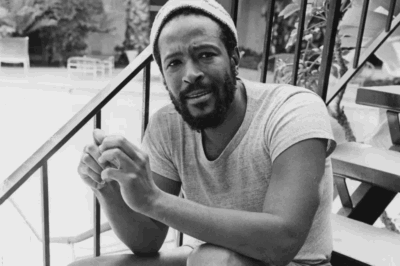 Inside the tragedy that silenced a soul legend: Marvin Gaye’s last fight with his father. By Christopher Goffard / LA Times
Inside the tragedy that silenced a soul legend: Marvin Gaye’s last fight with his father. By Christopher Goffard / LA Times
By the time 44-year-old Marvin Gaye moved into the big, rambling house with his parents on South Gramercy Place, his cocaine habit was severe and his paranoia was deep. Enemies were conspiring against him, he feared. He gave his father a .38-caliber revolver. To protect the house, he said. He had come full-circle from childhood, to live with his mother, who adored him, and his disapproving father, who would kill him.
“My daddy was a minister,” Gaye said, “and so when I began to sing it was for him.” They were at war from the start. The father beat the son regularly, and scorned nonreligious music as the devil’s work. “My husband never wanted Marvin,” the singer’s mother, Alberta, told a biographer. “And he never liked him. He used to say that he didn’t think he was really his child. I told him that was nonsense. Read more
Sports
 Shedeur Sanders, Jalen Hurts and a trip worth taking. By William C. Rhoden / Andscape
Shedeur Sanders, Jalen Hurts and a trip worth taking. By William C. Rhoden / Andscape
Cleveland Browns rookie quarterback didn’t play against Philadelphia but had one of the most significant weeks of his career
Last week was hardly a lost week for Sanders. In fact, it may have been one of the most significant weeks of Sanders’ young professional career because he was forced to do something he has not done probably since Pee Wee football. He was forced to sit and watch. Beyond that, the most important part of the week was that Sanders connected with Jalen Hurts, the Eagles’ veteran quarterback and the MVP of Super Bowl LIX. Read more
 How bigotry crushed the dreams of an all-Black Little League team. By Chris Lamb / The Conversation
How bigotry crushed the dreams of an all-Black Little League team. By Chris Lamb / The Conversation
Members of the 1955 Cannon Street All-Star YMCA team chat before a game at Nationals Park in Washington, D.C., on Aug. 19, 2011.
When the Cannon Street team registered for a baseball tournament in Charleston in July 1955, it put the team and the forces of integration on a collision course with segregation, bigotry and the Southern way of life. White teams refused to take the field with the Cannon Street team, who represented the first Black Little League in South Carolina. The team won two tournaments by forfeit. They were supposed to then go to a regional tournament in Rome, Georgia, where, if they won, they’d advance to the Little League World Series. Read more
 News about the Colin Kaepernick doc by Spike Lee is terribly sad. By Mike Freeman / USA Today
News about the Colin Kaepernick doc by Spike Lee is terribly sad. By Mike Freeman / USA Today
I don’t remember the exact day it happened. It’s still a blur. A year or so later. But one day I got a note from Spike Lee‘s production company saying Lee wanted to interview me for his upcoming documentary about the life of Colin Kaepernick.
Lee knew that I had covered Kaepernick’s protest movement extensively, and the interview focused partly on that, and on other aspects tangential to the former quarterback. Lee was gracious and when the interview concluded extremely thankful. Some people say never meet your heroes. I’m glad I met mine. I say all of this because actually there are two heroes in this story. One is Lee and the other is Kaepernick. The latter is one of the great sports civil rights leaders we’ve ever seen. Someone who took on the NFL and started a movement. Read more
Site Information
Articles appearing in the Digest are archived on our home page. A collection of “Books/Podcast and Video Favorites ” is also found on our home page. And at the top of this page register your email to receive notification of new editions of Race Inquiry Digest.
Click here for earlier Digests. The site is searchable by name or topic. See “search” at the top of this page.
About Race Inquiry and Race Inquiry Digest. The Digest is published on Monday and Thursday. The Weekend Edition is published on Saturday. Click here for earlier Editions.
Use the customized buttons below to share the Digest in an email, or post to your Facebook, Linkedin or Twitter (X) accounts.